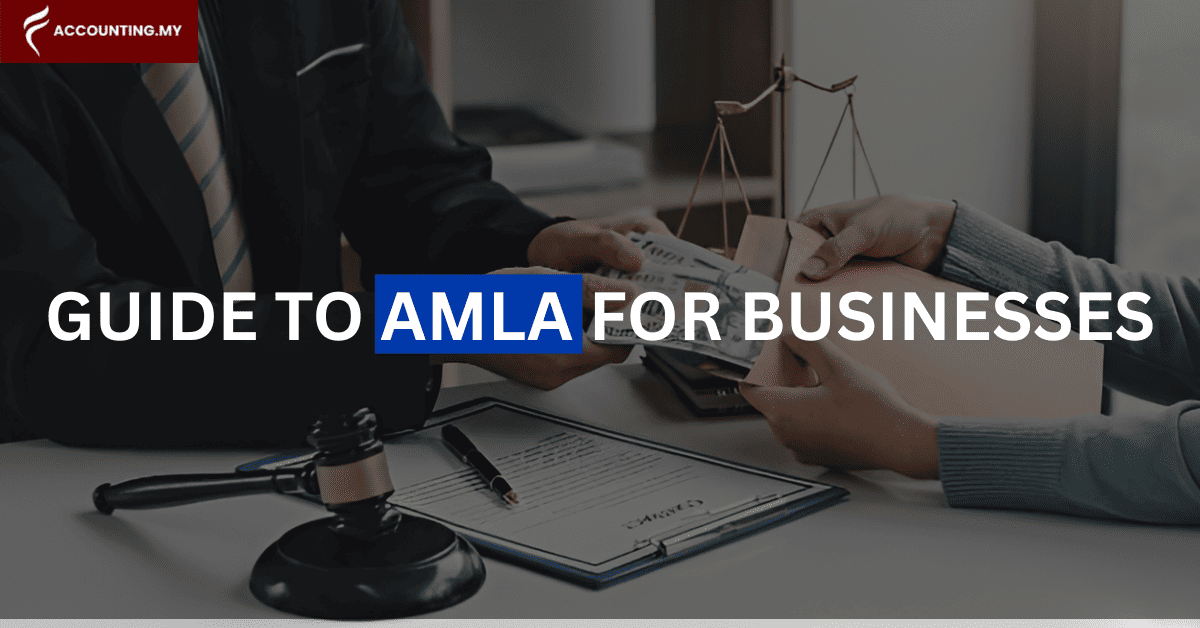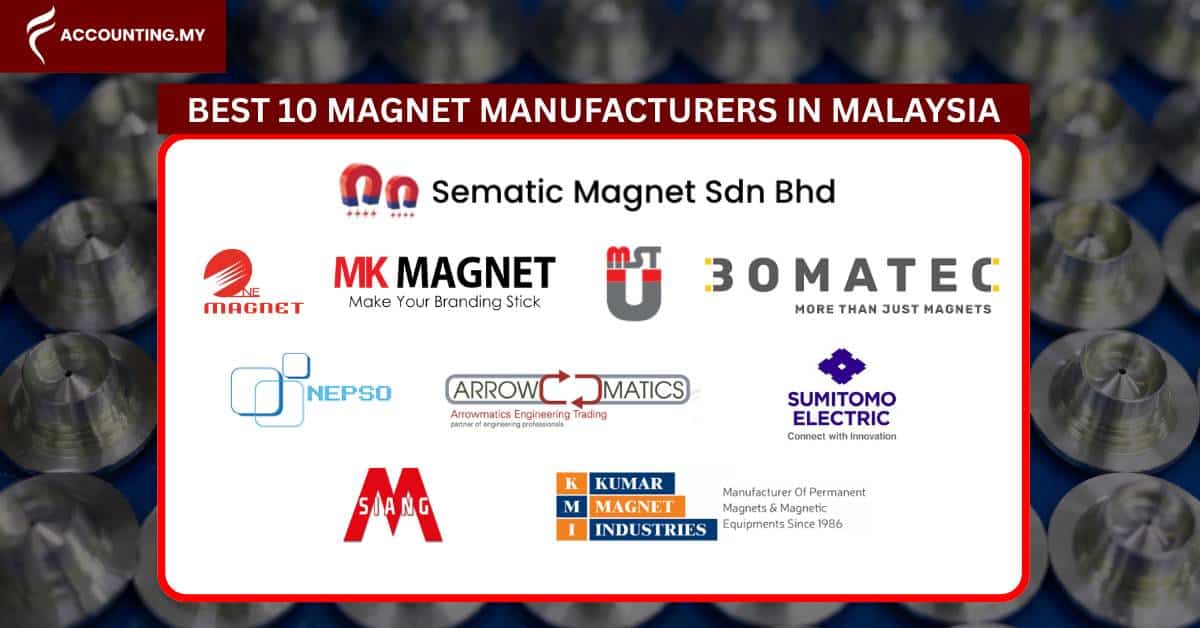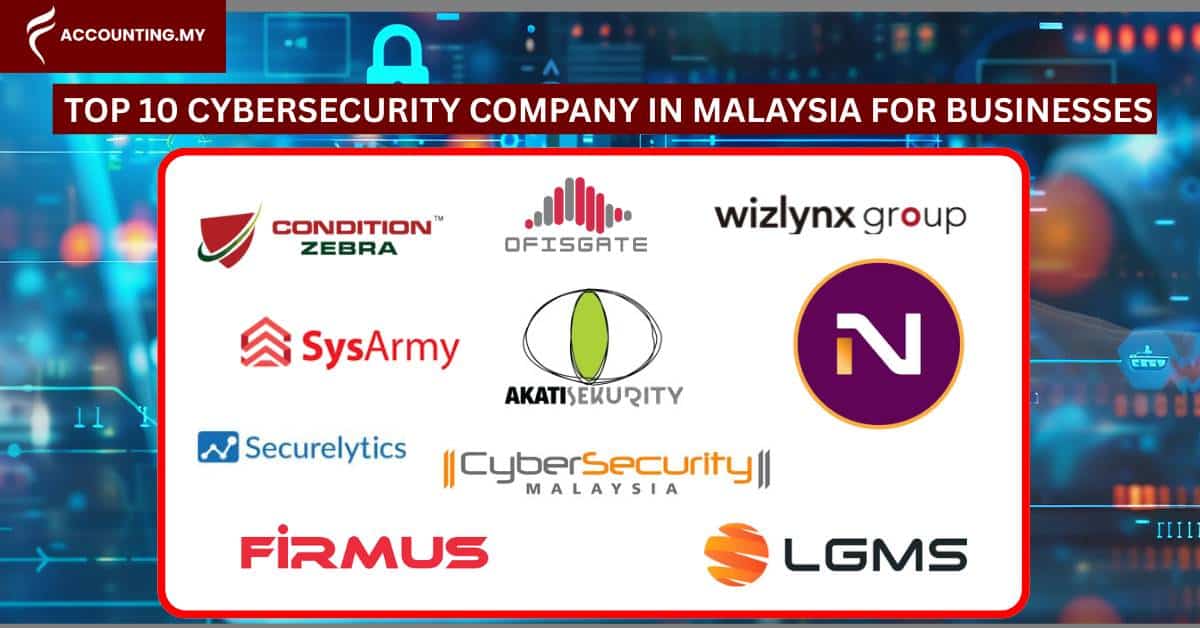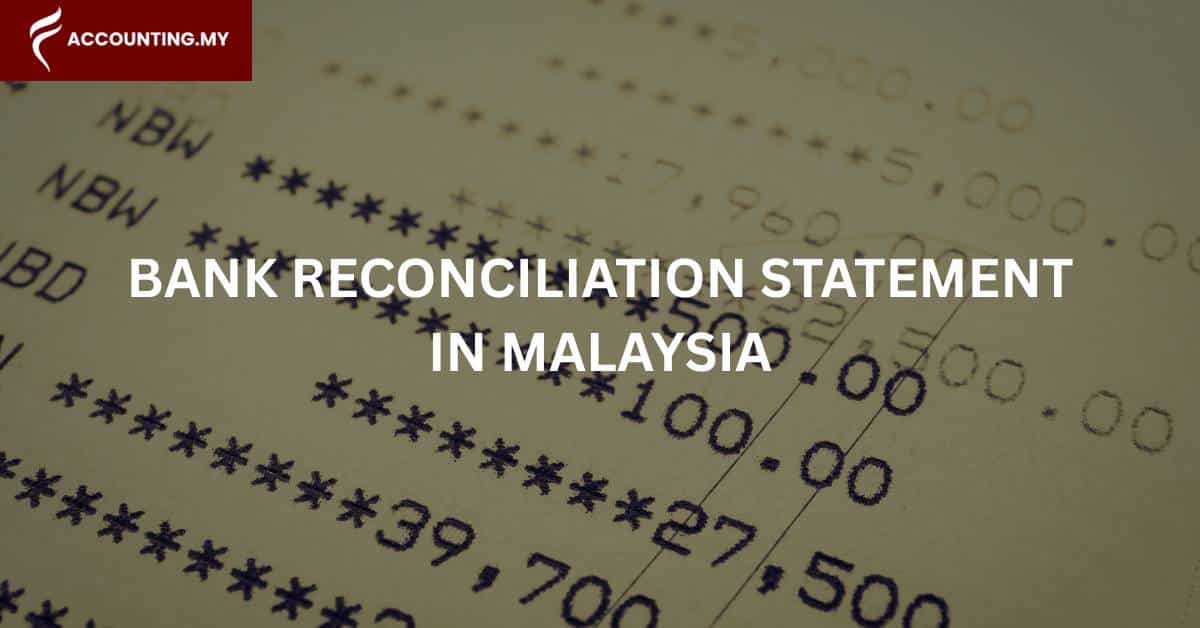In Malaysia, every business big or small, must comply with the Anti-Money Laundering, Anti-Terrorism Financing and Proceeds of Unlawful Activities Act 2001, commonly known as AMLA. This law is designed to prevent illegally obtained money or tax from being disguised as legitimate income, and the penalties for non-compliance can be severe.
Yes, the name is a mouthful. But understanding how AMLA works, and what your business must do to stay compliant, can protect you from massive fines, reputational damage, or even criminal liability.
What Is the Anti-Money Laundering Act in Malaysia?
AMLA prevents businesses from unknowingly helping criminals clean illegal money or finance terrorism. It applies to every sector and requires strict compliance with customer checks, reporting, and recordkeeping.
Imagine someone making a pile of cash through shady dealings, they then try to clean it up by funnelling it through your business, that is not a good look in the eyes of the law.
The anti money laundering act is there to prevent this. It also covers stopping funds from being used for terrorism, a matter of utmost importance globally and here in Malaysia.
The Anti-Money Laundering, Anti-Terrorism Financing and Proceeds of Unlawful Activities Act 2001 (AMLATFPUAA) Its primary function is to prevent the flow of illicit funds derived from illegal activities and to counter the financing of terrorism.
What Are Your AMLA Responsibilities as a Business?
The AMLA places several obligations on businesses. It’s not just for the big boys or public listed companies, everyone plays their part in keeping our country safe. Here are some of the main areas you need to be aware of:
- Knowing Your Customer (KYC): This is crucial. You need to establish the identity of your customers and understand who you’re doing business with.
- Keeping Records: Maintaining detailed records of transactions and customer information. These records can be the trail that helps authorities track any suspicious activity.
- Reporting Suspicious Transactions: If you spot something that just doesn’t feel right, such as a transaction that’s unusually large, complex, or has no clear economic purpose, you have a duty to report it. These reports go to the relevant authorities, like Bank Negara Malaysia (BNM).
Read more: How To File Income Tax Malaysia Explained
Customer Due Diligence (CDD)
This part of the Anti Money Laundering Act is all about taking reasonable steps to identify your customers and verify their identity. The level of detail required can depend on the risk associated with the customer.
- For most customers, this might involve:
- Obtaining their name, address, and identification documents (like a national IC or passport).
- Verifying the authenticity of those documents.
- For higher-risk customers, you might need to do Enhanced Due Diligence (EDD). This could involve:
- Finding out the source of their funds and wealth.
- Conducting more frequent and thorough checks.
- Getting senior management approval for the business relationship.
The AMLA mandates that businesses keep records for a certain period. These records should be comprehensive enough to reconstruct any transaction. This includes:
- Customer identification data.
- Account files.
- Business correspondence.
- Transaction documents.
The specific retention period can vary, so it’s worth checking the exact requirements, but generally, it’s for at least five years from the date the business relationship ends or the date of the transaction.
Reporting Suspicious Transactions (STR)
If you have suspicions that a transaction might be linked to money laundering or terrorism financing, you are legally obliged to file a Suspicious Transaction Report (STR) with Bank Negara Malaysia.
What Are the Penalties for Not Following AMLA?
Ignoring the Anti Money Laundering Act Malaysia can land you in very hot water. The AMLA Malaysia penalty for non-compliance can be severe. This can include hefty fines and even imprisonment. The exact penalty depends on the nature and severity of the offence. It’s simply not worth the risk.
Obligation | Risk of Non-Compliance |
KYC & Customer Due Diligence (CDD) | Fines up to RM1 million and possible imprisonment for failure to verify customers. |
Record-Keeping | Up to RM3 million in fines and jail time, especially for repeated or serious breaches. |
Reporting Suspicious Transactions (STR) | Non-reporting can trigger RM1 million fines and/or imprisonment. |
Cooperating with Investigations | Obstruction may result in RM3 million fines and significant jail terms. |
Preventing Criminal Abuse of Your Business | Lax controls can lead to RM5 million+ fines and lengthy imprisonment. |
Following Regulatory Guidelines | Ignoring BNM or SC rules can result in fines and criminal liability. |
Which Businesses in Malaysia Must Comply with AMLA?
While certain sectors like financial institutions are heavily regulated under the AMLA, it’s important for every business to be aware. Especially for:
- Accountants
- Lawyers
- Real estate agents
- Casinos
- Dealers in precious metals and stones
- And many others
You will notice these businesses all closely deal with finance, large purchases or money matters.
However, even if your business isn’t in a traditionally high-risk sector, understanding the basics of AMLA and implementing good practices is just sensible business. So, do your part and conduct appropriate financial reporting.
How Do You Spot Red Flags of Money Laundering?
Businesses must stay alert to suspicious transaction patterns, behaviours, and inconsistencies that could signal potential money laundering or terrorism financing.
Here are the key warning signs to watch for:
1. Unusual Transaction Size or Pattern
Be cautious if a customer suddenly starts transacting in unusually large amounts or complex patterns.
Example: A small café suddenly receiving large international wire transfers with no clear business explanation.
2. Cash-Heavy Transactions
An excessive use of cash especially when the business model doesn’t typically involve it — may indicate attempts to obscure fund origin.
Customers insisting on large cash dealings without proper rationale may be avoiding traceability.
3. Suspicious Customer Behaviour
Red flags include:
- Refusing to provide valid ID
- Evasive or overly secretive behaviour
- Using intermediaries or anonymous setups
A nervous or defensive attitude during onboarding should not be ignored.
4. Transactions Linked to High-Risk Countries
Heightened caution is required when transactions involve jurisdictions flagged by FATF or known for weak AML enforcement.
These may not always be suspicious, but require enhanced due diligence (EDD).
5. Lack of Clear Business Rationale
Be alert to transactions that:
- Don’t align with the client’s usual business
- Seem structured only to move funds
- Lack legitimate commercial reasoning
If something doesn’t make business sense, question it.
6. Structuring or “Smurfing”
When large sums are split into smaller transactions to avoid triggering reporting thresholds, this tactic is known as structuring.
Multiple small deposits from the same source could indicate attempted concealment.
7. Unexplained Wealth or Fund Source
If a customer’s declared income or business doesn’t justify their level of wealth, further verification is necessary.
Always ask for the source of funds if there’s a mismatch between profile and activity.
Remember, while one red flag alone may not confirm criminal intent, a combination of indicators or repeated patterns should trigger internal review and, if warranted, the filing of a Suspicious Transaction Report (STR) with Bank Negara Malaysia.
Is Your Business AMLA Compliant? If not, You’re at Risk.
AMLA is a fundamental aspect of conducting business responsibly and legally within Malaysia. They actively safeguard our nation from unsolicited activity and potential threats to our country,
At Accounting.my, we are committed to assisting Malaysian businesses in establishing and maintaining strong AML frameworks, ensuring they operate with confidence and security within the national regulatory environment.
Whether you’re applying for a business license or already operating in a regulated sector, our 13+ years of regulatory compliance and accounting best practices is here to empower you for full compliance with the AMLA.
Frequently Asked Questions About AMLA
While certain sectors have more stringent obligations, a broad range of businesses must understand and comply with basic tenets like customer due diligence and reporting suspicious transactions.
Yes. Financial institutions and designated non-financial businesses are required to report cash transactions exceeding a specific threshold to BNM.
Enhanced due diligence measures, including senior management approval and scrutiny of the source of wealth and funds, are required for PEPs.
Employees can face disciplinary action from their employer and potential legal penalties under the Act if they knowingly fail to report.
An STR is filed when there are suspicions of money laundering or terrorism financing, regardless of the amount, while a CTR is for physical currency transactions exceeding a prescribed limit.
Yes. The Act provides some protection for individuals who report suspicious activities in good faith.















